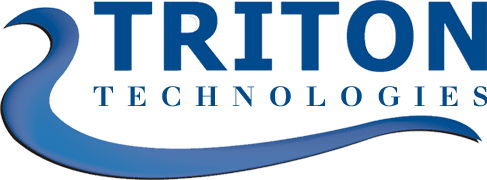October marks National Cybersecurity Awareness Month, an initiative that reminds individuals and businesses to stay vigilant and protect their digital assets. As cyber threats continue to evolve, the importance of fostering a culture of cybersecurity awareness is more vital than ever. From ransomware attacks to phishing scams, no one is immune. This article explores what National Cybersecurity Awareness Month is all about and offers practical tips to enhance your digital safety. By the end of this read, you’ll understand why cybersecurity is essential for everyone and how you can take steps to secure your online presence.
What is National Cybersecurity Awareness Month?
National Cybersecurity Awareness Month, often referred to as Cybersecurity Awareness Month or Cyber Awareness Month, is a global effort to spread awareness about the importance of cybersecurity. It was launched in 2004 by the U.S. Department of Homeland Security and the National Cyber Security Alliance to educate people on how to protect their personal and business data from cyber attacks.
The initiative is not limited to the United States; it has gained international traction, highlighting the need for cybersecurity practices worldwide. The core message is to encourage everyone—from large corporations to individuals—to take ownership of their online presence and practice safe habits.
The Importance of Cybersecurity Awareness Month
In today’s interconnected world, nearly every aspect of our lives involves the internet, from banking and shopping to communication and healthcare. This increased reliance on technology has created more opportunities for cybercriminals to exploit vulnerabilities in networks, devices, and user behavior.
Cybersecurity Awareness Month shines a spotlight on the threats we face and the actions we can take to mitigate risks. Cybersecurity is not just a job for IT departments anymore; it’s a shared responsibility. Whether you’re a business owner, employee, or everyday user, understanding cyber risks and how to protect against them is crucial.
Explore our Managed Service Offerings
Worcester’s Top Managed Service Provider
Common Cyber Threats to Be Aware Of
As we observe Cybersecurity Awareness Month, it’s important to recognize the most common cyber threats individuals and businesses face:
Phishing Attacks
Phishing is one of the most common and dangerous tactics used by cybercriminals to steal sensitive information. In a phishing attack, fraudsters pose as legitimate entities—such as banks, online retailers, government agencies, or even colleagues—in order to trick individuals into revealing personal information like passwords, credit card numbers, or Social Security details. These attacks often come in the form of emails, text messages, or social media communications that appear to be from a trusted source.Cybercriminals often pose as legitimate entities in emails or messages to steal sensitive information such as passwords and credit card details.
Ransomware
Ransomware is a particularly insidious form of malicious software (malware) that encrypts a victim’s files, rendering them inaccessible until a ransom is paid. Once a system is infected, the attacker typically demands payment—often in cryptocurrency like Bitcoin—in exchange for the decryption key needed to restore access to the encrypted data. This type of attack has grown exponentially in recent years, becoming one of the most devastating and costly cyber threats, especially for businesses and critical infrastructure. A type of malicious software that encrypts your files, and the attacker demands a ransom to restore access. This is especially devastating for businesses.
Malware
Malware, short for malicious software, is a broad term encompassing various forms of harmful programs designed to infiltrate and damage computer systems or networks. Once a system is compromised, malware can cause anything from minor annoyances—such as slowing down your computer or displaying unwanted ads—to significant damage, such as stealing sensitive data, corrupting files, or even disabling entire networks. Common types of malware include viruses, worms, trojans, spyware, and adware. Cybercriminals often use malware to gain unauthorized access to systems, either to steal personal information like passwords and credit card details or to hold data hostage through ransomware attacks.
Social Engineering
Unlike technical attacks, social engineering preys on trust, curiosity, fear, or urgency. For example, an employee might receive an email that appears to be from their manager, asking them to click a link to update their account information. In reality, the link leads to a fraudulent website designed to capture login credentials. Social engineering attacks are particularly dangerous because they bypass technological defenses, relying instead on human error.
Data Breaches
In recent years, data breaches have become alarmingly common, affecting millions of individuals and businesses globally. Breaches often target organizations with large databases of customer information, such as financial institutions, healthcare providers, and online retailers. Once the data is in the hands of cybercriminals, it can be sold on the dark web, used to commit fraud, or leveraged for further attacks.
Preventing data breaches requires comprehensive security strategies, including strong encryption, multi-factor authentication, regular security audits, and access controls to ensure only authorized individuals can view sensitive data. Additionally, organizations must notify affected parties quickly after a breach to minimize the potential damage and comply with regulatory requirements such as PCI-DSS or HIPAA.
Understanding these threats is a critical part of National Cybersecurity Awareness Month, as it empowers individuals and organizations to take appropriate measures.
Discover our IT Solutions for Your Industry
Worcester’s Top Managed Service Provider
Cybersecurity Safety Tips for National Cybersecurity Awareness Month
Cybersecurity Awareness Month provides an opportunity to refresh your knowledge on cybersecurity best practices and implement cybersecurity safety tips. Whether you’re an individual, employee, or business owner, here are some practical steps you can take to protect yourself this Cyber Awareness Month:
Update Software Regularly
Outdated software is one of the most common entry points for cybercriminals. Always ensure your operating systems, applications, and antivirus programs are up to date. Regular updates often include security patches that protect against newly discovered vulnerabilities.
Use Strong, Unique Passwords
Passwords are often the first line of defense against unauthorized access. Use strong, unique passwords for each of your accounts. A good rule of thumb is to use a combination of letters, numbers, and special characters, and avoid using easily guessed information like your birthdate. Consider using a password manager to help you keep track of multiple strong passwords.
Enable Two-Factor Authentication (2FA)
Two-factor authentication (2FA) adds an extra layer of security to your accounts by requiring not only a password but also a second form of verification, such as a text message or biometric scan. Enabling 2FA significantly reduces the likelihood of unauthorized access, even if your password is compromised.
Be Wary of Phishing Scams
Phishing attacks remain one of the most common cybersecurity threats. Always be cautious of unexpected emails or messages asking for sensitive information or directing you to unfamiliar websites. Look for signs of phishing, such as misspelled URLs or suspicious email addresses. When in doubt, verify the legitimacy of the sender before clicking on any links or providing personal information.
Secure Your Home Network
With remote work on the rise, securing your home network is more important than ever. Ensure your Wi-Fi router is protected with a strong password and encryption (WPA3 is currently the most secure). Additionally, consider setting up a guest network for visitors and regularly check for firmware updates to your router.
Backup Your Data Regularly
In the event of a cyberattack, having a backup of your important files can be a lifesaver. Regularly backup your data to an external hard drive or cloud storage service to ensure you can recover your information in case of a breach or ransomware attack.
Monitor Your Financial Accounts
Cybercriminals often target financial information, so it’s essential to monitor your bank and credit card accounts regularly. Look out for any suspicious activity and report it immediately. Many banks offer fraud alerts that can notify you of unusual transactions.
The Role of Businesses During Cyber Awareness Month
While National Cybersecurity Awareness Month emphasizes individual safety, businesses play a crucial role in ensuring the security of data, both for their employees and customers. Implementing a comprehensive cybersecurity strategy can significantly reduce the risk of a breach. Here are some steps businesses should consider during Cybersecurity Awareness Month:
Conduct Regular Employee Training
Employees are often the weakest link in an organization’s security posture. Regular cybersecurity training helps employees recognize threats such as phishing emails and unsafe websites. Training should be updated regularly to cover new types of cyberattacks and encourage vigilance.
Implement a Strong Password Policy
Businesses should enforce a password policy that requires employees to use strong, unique passwords and change them regularly. Consider integrating multi-factor authentication for accessing sensitive data or systems.
Establish Incident Response Plans
Having a solid incident response plan can mitigate the impact of a cyberattack. This should include steps for detecting, responding to, and recovering from breaches. Incident response drills should also be conducted to ensure that everyone knows their role in the event of an attack.
Use Encryption for Sensitive Data
Data encryption is essential for protecting sensitive information both in transit and at rest. Ensure that confidential customer information, employee records, and financial data are encrypted to prevent unauthorized access.
Discover Our Compliance Management Solutions
Worcester’s Leading Provider of Compliance Services
How Triton Technologies Can Help You Stay Secure
At Triton Technologies, we understand the unique cybersecurity challenges that different industries face. Whether you’re in healthcare, education, government, legal services, or finance, we provide Managed Services, IT Compliance, and Customized IT Solutions to meet the specific needs of your sector. Our comprehensive cybersecurity offerings are designed to protect your business during Cybersecurity Awareness Month and beyond.
Managed IT Services
Our Managed Services allow businesses to offload their IT needs to a trusted partner. From 24/7 monitoring to proactive maintenance, we ensure your systems run smoothly and securely. By managing your IT infrastructure, we help you focus on core business operations, while keeping your data and network safe from cyber threats.
IT Compliance Services
Meeting industry-specific compliance requirements is critical, especially in sectors like healthcare, finance, and legal services. Triton Technologies offers specialized IT Compliance services to ensure that your organization adheres to the necessary regulatory frameworks, such as HIPAA for healthcare and GDPR for data protection. Our compliance solutions help you avoid costly fines while maintaining the highest security standards.
Comprehensive Cybersecurity Audits
Our in-depth cybersecurity audits evaluate your infrastructure, identifying vulnerabilities specific to your industry. Whether you’re managing sensitive healthcare records, student information, or government data, our experts deliver actionable insights to bolster your security framework and reduce risk.
Employee Training Programs
Cybersecurity awareness is essential for every industry. Triton Technologies offers customized employee training programs that focus on industry-specific threats such as phishing, ransomware, and social engineering. We equip your team with the knowledge and tools they need to recognize and respond to cybersecurity risks effectively.
Advanced Threat Detection
We provide Advanced Threat Detection services that are tailored to the security requirements of various industries. With real-time monitoring and AI-driven threat detection, we protect critical data in sectors like education, finance, and legal firms, ensuring confidentiality and compliance.
Incident Response and Recovery
When a cyberattack occurs, immediate action is crucial. Triton Technologies delivers rapid incident response and recovery services, customized for your industry’s needs. Whether it’s protecting patient information in healthcare or securing financial data, we work quickly to contain threats, recover your systems, and restore operations.
Customized IT Solutions for Multiple Industries
At Triton Technologies, we take pride in offering Customized IT Solutions for a wide range of industries. From healthcare to government and beyond, we tailor our services to meet the unique cybersecurity, compliance, and operational challenges of each sector. Our solutions are designed not only to protect sensitive data but also to ensure seamless business continuity.
By choosing Triton Technologies as your cybersecurity and IT partner, you’re ensuring the highest level of protection for your business. This Cyber Awareness Month, take proactive steps to safeguard your organization with our tailored Managed Services, IT Compliance solutions, and industry-specific IT solutions. With Triton Technologies by your side, you can confidently navigate today’s complex cybersecurity landscape. Contact us today to learn more about our service offerings.



